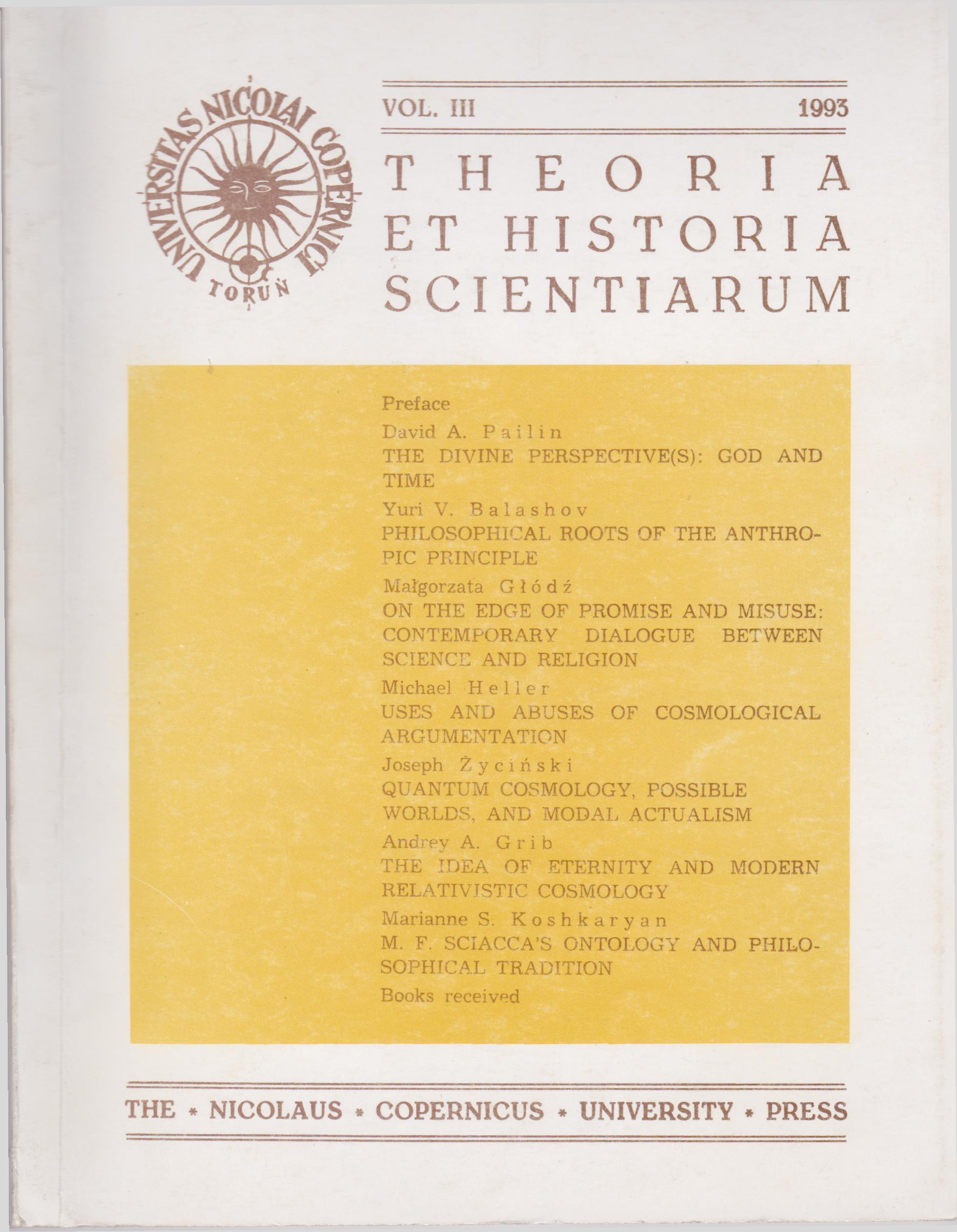Philosophical Roots of the Anthropic Principle
DOI:
https://doi.org/10.12775/ths.1993.003Keywords
philosophy, anthropic philosophy, anthropic principle, epistemology,Abstract
The relevance of this topic to the present meeting is partly due to the fact that almost two decades have elapsed since an astrophysicist, Brandon Carter, had first introduced the Anthropic Cosmological Principle. This has taken place here, in Cracow, at the special Symposium of the IAU devoted to the anniversary of Nicolas Copernicus (Carter 1974). In recent years the Anthropic Principle (AP) has became a matter hotly disputed in the physical, philosophical and theological literature. The constantly increasing interest of the humanities community in the AP may testify to the conjecture that this principle is no accident in the history of ideas. Besides immediate scientific prehistory it may have a substantive philosophical background.References
Babushkin, V.U. (1975), Phenomenological Philosophy of Science, Moscow: Nauka. (In Russian)
Carter, B. (1974), Large Numbers Coincidences and the Anthropic Principle in Cosmology, [in:] M.Longair (ed.), Confrontation of Cosmological Theories With Observational Data, Dordrecht: Reidel, pp. 291—298.
Gale, G. (1990), Cosmological Fecundity: Theories of Multiple Universes, [in:] J. Leslie (ed.), Physical Cosmology and Philosophy, New York: Macmillan, pp. 189—206.
Husserl, E. ([1900], 1970), Logical Investigations, Vol. I. Prolegomena to Pure Logic, London:
Routledge & Kegan Paul; New York: The Humanities Press. (Transl. J.N. Findlay).
Wheeler, J.A. (1980), Beyond the Black Hole, [in:] H. Woolf (ed.), Some Strangeness in the
Proportion, Reading (Mass.): Addison-Wesley, pp. 341—363.
Downloads
Published
How to Cite
Issue
Section
Stats
Number of views and downloads: 617
Number of citations: 0



